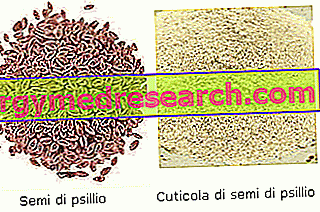Generality
Pancreatitis is a general inflammation of the pancreas, a very important gland for the digestive and glycemic balance of the whole body.

Article Index
Causes Complications Diagnosis Cures and Treatment Drugs for Pancreatitis Treatment Pancreatitis DietSymptoms
To learn more: Pancreatitis symptoms
Acute pancreatitis is manifested by a sudden and violent pain in the upper part of the abdomen, anatomical site of the pancreas, with a tendency to irradiation towards the back. Painful symptoms typically aggravate after meals, with deep inhalation and during palpation of the abdomen; instead they tend to relieve bending forward (the patient searches and maintains an analgesic position). Pain is often followed by nausea and alimentary and biliary vomiting (dark green), while the patient is particularly suffering, feverish, anxious and agitated, often with signs of shock (cold and pale skin, marked hypotension, small pulse and frequent). In the absence of treatment, the pain, often however resistant to drugs, reaches its maximum progressively, remains intense for a long time and gradually decreases over days or weeks.
In chronic pancreatitis the symptoms are more nuanced, so that sometimes the inflammation starts in a paucisintomatic way; the patient complains of pain in the upper part of the abdomen, associated with an inexplicable loss of weight, lack of appetite and digestive difficulties with the appearance of steatorrhea (fat, oily stools, especially in conjunction with high-fat copiose meals).
Causes
Many of the pancreatic digestive enzymes, especially proteases, are synthesized in an inactive form, so as to protect the cells that produce them from their damaging action. When these enzymes, carried by the pancreatic juice, flow into the duodenum (initial tract of the small intestine) they undergo an activation process, necessary for the optimal fulfillment of digestive activities. In pancreatitis the inflammatory process of the pancreas is sustained by the early activation of these enzymes inside the gland. Repeated insults can therefore cause chronic damage to the pancreas (self-digestion, necrosis of the vessels and consequent inflammatory reaction), with gradual loss of its functionality; in these cases we speak of pancreatic insufficiency. Unfortunately, the reduced functionality of the pancreas causes serious digestive problems and poor glycemic control, with the appearance of diabetes.
The possible causes of pancreatitis are numerous and often associated; the most common are biliary calculosis, in which one or more "pebbles" migrate from the gallbladder or bile ducts into the ampulla of Vater (dilatation of the common bile duct where pancreatic juices carried by the bile duct join the bile, coming from the liver and from the gall bladder, for a very short stretch, before pouring into the duodenum). An obstruction at this level prevents the normal outflow of bile and pancreatic juice into the intestine; consequently, these secretions tend to rise and accumulate inside the gland, causing and sustaining the inflammatory process. For the same reason, pancreatitis is typically caused by the inflammation or malfunctioning of Oddi's sphincter (a muscular ring located downstream of the ampulla of Vater, which tends to let the digestive juices flow freely following a meal and hinder them during fasting, when their action is no longer necessary). Obstructive processes at various levels can also be favored by hyperparathyroidism and hypercalcaemia, which facilitate the activation of enzymes within the pancreas and the appearance of calcifications of the excretory ductal system and pancreatic parenchyma.
Another rather common cause of pancreatitis is alcoholism (ductal hypertension and edema), especially when it is aggravated by other unhealthy habits, such as smoking (smoking) or a habitually hyperlipidic and high-protein diet. Not surprisingly, attacks of acute pancreatitis often occur following a heavy meal or conspicuous alcohol ingestion. Hypertriglyceridemia is also an important risk factor for pancreatitis, along with the inevitable family predisposition and some drugs (such as azathioprine, thiazide diuretics, asparaginase, estrogens, tetracyclines and corticosteroids).
Among the less common causes we mention cystic fibrosis, violent abdominal traumas, tumors of the pancreas or sphincter of Oddi, penetrating duodenal ulcer, viral infections, surgical operations on nearby organs (stomach, biliary tract, duodenum, spleen) and an interventional diagnostic procedure called endoscopic retrograde colangiopancreatography.
In a non-negligible number of cases it is not possible to identify any cause of origin; in these cases we speak of idiopathic pancreatitis.
Pancreatitis: Symptoms, Diagnosis, Treatment and Prevention
X Go to the Video Page Go to Wellness Destination Watch the video on youtube



